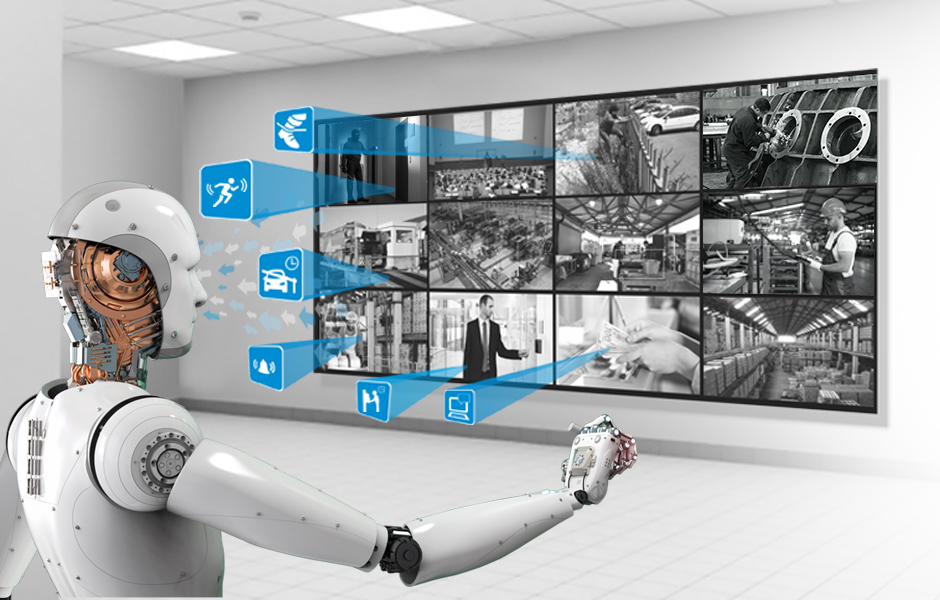
Video surveillance solutions are growing day after day revolutionizing the whole spectrum of security. From being a supplementary addition to the processes, security solutions nowadays are a driving force behind the effectiveness of any manufacturing firm. But, as we move towards the age of artificial intelligence, the need for proactive security arises. The present security solutions can be attributed as reactive security which gives the security personnel notifications after the breach/intrusion has occurred. Security should not be just associated with gathering evidence after the incident has happened. But, it should aid in the decision-making process to mitigate the potential risk in real-time. The present surveillance systems comprise intelligent video analytics that detects motion, intrusion, tamper, and other abnormalities. But, at present security in most of the firms deployed is in a distributed architecture which causes delays in the decision-making process as the authority lies with the center.
As manufacturers heavily invest in technology to gain a competitive advantage by minimizing the cost and maximizing the revenues. Similarly, should be the attitude towards investing in security which gives them a central command and control over their premises. Also, it should be assistance at the time of potential breaches and alleviate them. With cameras having analytics to detect the irregularity in surveillance but they are not useful if the monitoring of cameras is still anachronistic. For manufacturers to take their existing security to a next level they should focus on adding advanced video analytics to their existing security. To elaborate, manufacturers should look for solutions that offer smart security to their premises. By smart security, we mean that security measures that assess the situation, detect the threat, and trigger the countermeasure against the threat on its own based on a cognitive algorithm. Here are the reasons why manufacturers should consider security solutions having cognitive analytics:
-
REDUCE FALSE ALARMS:
The first reason to consider advanced video analytics comprising cognitive algorithms is that they help manufacturing firms avoid false alarms. Video analytics are designed to detect the slightest anomaly in the monitoring footage and send a notification to the concerned person. Now, these irregularities can be caused by even a falling leaf if a tree is nearby or even by the wind. So, intelligent analytics ease the monitoring task of investigators by sending notifications only if the event occurred matches the situation as defined in the algorithm. Therefore, false alarms are avoided and security is deployed efficiently.
-
AUTOMATION IN MONITORING:
Most video surveillance software limits itself to just managing the footage from multiple cameras and recording devices. Video analytics combined with cognitive algorithm engines automize the whole monitoring process. The engine takes input from multiple sources such as input from the registered user, from the event generated due to video analytics, from the third-party software that is integrated with the video management system. Next, the algorithm analyzes the inputs and determines the output to be given for the situation. Thereby, automizing the whole process for monitoring video footage. In some complex cases, it even outperforms the human capabilities of monitoring the video footage with consistency in the responses.
-
REDUCE ERRORS:
There might be certain situations where humans are unable to perform the desired tasks. For example, if the monitoring person is a rookie at their job they might not be able to answer complex situations which require the configuration of multiple inputs. Here, intelligent analytics help in eliminating potential errors due to multiple inputs. To illustrate, if your video management system is integrated with an access control system at your premises and requires inputs from multiple sources such as an access control user database and video management system to give the desired output. The same can be configured in the algorithm and the algorithm will detect the pattern and give the desired response every time. It saves time as well as provides enhanced security.
Now, designing a cognitive algorithm that matches your surveillance system might be a tedious task as multiple variables need to be considered. Variables like the scalability of the algorithm, its performance, its integration with other security systems like access control, fire alarms, and other external variables. To put a full stop to your worries, Matrix has designed its cognitive engine, CREAM which stands for Cognitive Response Engine with Automated Monitoring. CREAM automizes your video surveillance by aiding you in the decision-making process. It is designed to integrate with your existing security systems as well as is scalable. Also, when it comes to performance, the cognitive engine does not miss out on a single event. So, if you want to gain a competitive edge by taking your security to the next level you can contact us at Inquiry@MatrixComSec.com. We will be happy to hear from you!
